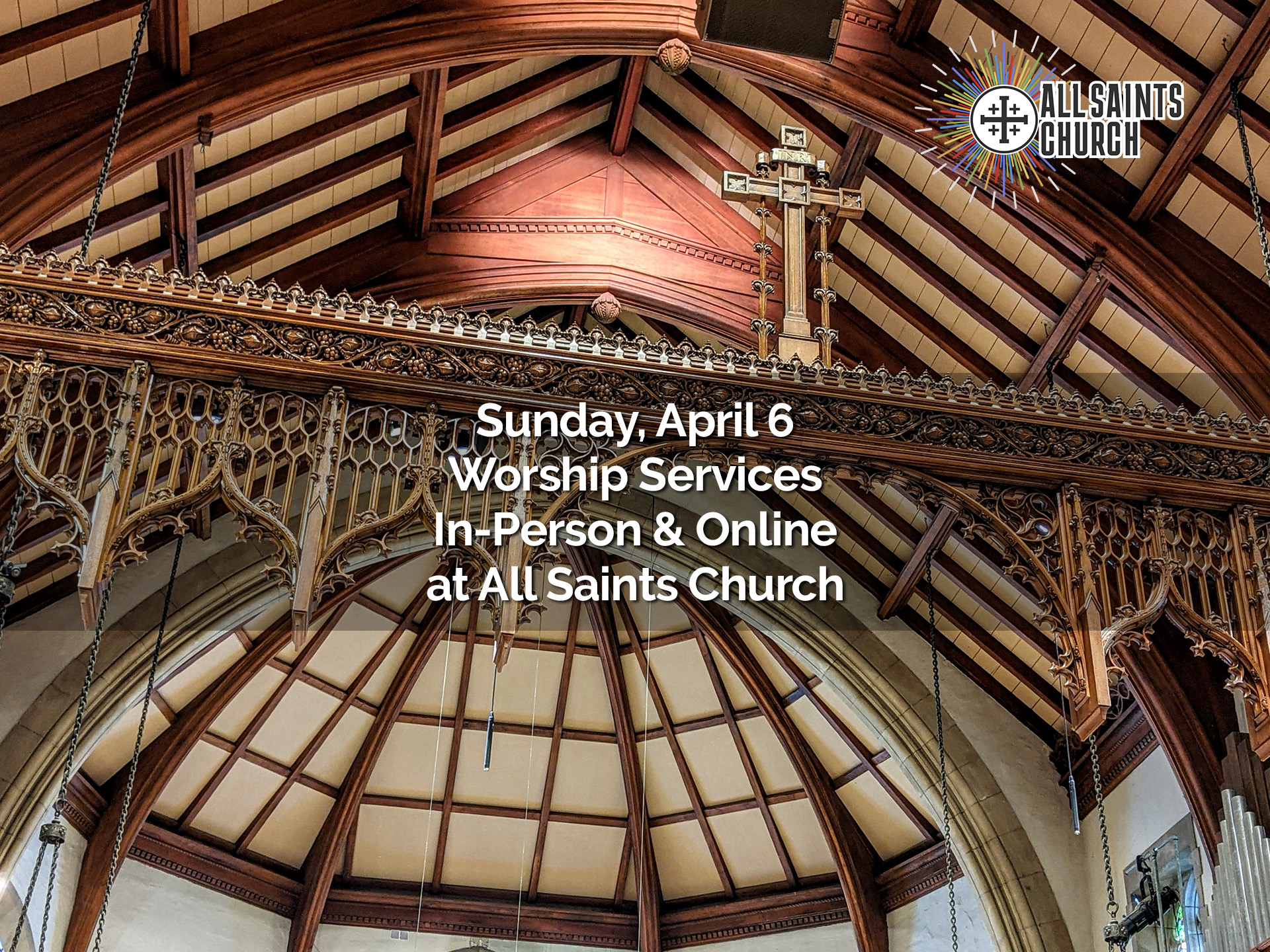The Gospel isn’t meant to be gulped down on Sunday morning, but gnawed on through the week so it really becomes a part of us. You’ve got to work at it, like a dog with a good bone! Here’s the Gospel for this coming Sunday — Palm Sunday — with food for thought about the passions God has put in your heart. Gnaw away!
Palm Sunday – Luke 19:28-40
Having said this, Jesus went ahead with the ascent to Jerusalem. Approaching Bethphage and Bethany, near what is called the Mount of Olives, Jesus sent two of the disciples with these instructions: “Go into the village ahead of you. Upon entering it, you’ll find a tethered colt that no one has yet ridden. Untie it and lead it back. If anyone should ask you, ‘Why are you untying it?’ say, ‘The Rabbi needs it.’ ”
They departed on their errand and found things just as Jesus had said. As they untied the colt, its owners said to them, “Why are you doing that?” They explained that the Rabbi needed it. Then the disciples led the animal to Jesus and, laying their cloaks on it, helped him mount. People spread their cloaks on the roadway as Jesus rode along.
As they reached the descent from the Mount of Olives, the entire crowd of disciples joined them and began to rejoice and praise God loudly for the display of power they had seen, saying, “Blessed is the One who comes in the name of our God! Peace in heaven, and glory in the highest!” Some of the Pharisees in the crowd said to Jesus, “Teacher, rebuke your disciples!” Jesus replied, “I tell you, if they were to keep silent, the very stones would cry out!”
The Backstory – What’s Going On Here?
Luke has talked about Jesus nearing Jerusalem for some time, and with it has had three foretellings of his death and resurrection. The triumphal entry is a royal procession, and Jesus’ instructions to his disciples about how his entry is supposed to proceed echo the instructions David gave prior to Solomon’s entry into Jerusalem in 1 Kings 1. This is not by accident. Luke is casting Jesus as a royal figure. That means this is not just a procession but a subversive protest march. And … the different nature of Jesus’ rulership is shown not only by the predictions of his death but by the stories immediately preceding the entry narrative in Chapter 19.
As he nears Jerusalem, Jesus, through word and deed exalts those who are marginalized in society (widows, tax collectors, children, Zaccheus — another tax collector, and a blind beggar) and castigates those in positions of respect (Pharisees, a judge and a rich ruler). His final story before reaching Jerusalem is the parable of the ten pounds — known more familiarly in its synoptic parallels as the parable of the talents — only Jesus ends the story not only with the other familiar ending (“I tell you, to all those who have, more will be given; but from those who have nothing, even what they have will be taken away.) but also with this warning: “But as for these enemies of mine who did not want me to be ruler over them—bring them here and slaughter them in my presence.”
Jesus is going to be the authority … this is clear. But it is also clear that he is going to turn upside down and inside out the patriarchal and hierarchical notions of authority they have … just as he has done the same with the entire social order.
A few things to chew on:
*Jesus was cheered by a crowd of people who expected him to be a ruler that would overthrow the Romans and restore the people of Israel to power. He knew that he was not that kind of ruler, and had to resist the seductive temptation of fulfilling the adoring expectations of others. Where in your life have you been … or are you … tempted to be someone other than who you are to fulfill others’ hopes and expectations of you? How do you discern between the possibility of becoming something new that you’re supposed to be and trying to be something you’re not?
*The Pharisees ordered Jesus to have his disciples stop, fearful of the threat to order that the procession posed. They assumed Jesus was the kind of ruler who absolutely dictated and controlled the actions of his disciples. But Jesus was a ruler who when 5,000 people were hungry told his disciples “You get them something to eat” and who had just finished telling the parable of the ten pounds. Which is why Jesus responded that the celebration was beyond his control. The church is full of systems of power and control. How do we make sure those systems are empowering and encouraging the work of the Spirit in the community and individuals and not quashing it?
Try This:
The triumphal procession is a story of unbridled joy and celebration. Jesus says it is so powerful that it couldn’t be stopped … that even the stones would cry out if the people were silent. What elicits such passion in you? What sets your life on fire? This week take a few minutes in the morning and in the evening and consider how much of your time and energy you are actually spending on those things. How can you change your life so you are spending more time and energy on the passions God has put in your heart … to more and more be someone whose life is set on fire.
Authority Without Easy Answers
In the Palm Sunday Gospel, the crowd wants a technical solution to an adaptive challenge. That’s nothing unusual. The crowd always does.
Over the past 20 years, the best and most helpful work on leadership I’ve encountered is Ron Heifetz’s Leadership Without Easy Answers. The core of it is a distinction he makes between technical problems and adaptive challenges.
Technical problems are problems where both the problem and the solution seem clear. My car won’t start, so it is possible to discover what is wrong with it (e.g. a dead battery) and fix it.
Adaptive challenges are much trickier. In an adaptive challenge, not only is there not an easily-discoverable solution, most of the time we’re not even sure what the right question is! An adaptive challenge is when we need to shift our whole way of thinking about something.
As human beings who love control, we love technical solutions — they make us feel powerful — and we hate adaptive challenges — they make us feel powerless. And so even when faced with an adaptive challenge, we gravitate toward trying the “quick fix” technical solution which scratches our itch of “doing something” but is utterly doomed to failure.
This translates perfectly into our Gospel this week … and into our church today. The people of Israel believe they have a technical problem – they are under Rome’s oppressive hand. And they have a technical solution — crowning a king who will be kick Rome’s tail out of Palestine. After all, that’s the solution that’s worked in the past, right?
But Jesus is not about the technical solution, but about the adaptive challenge. He knows the people need to shift their whole way of thinking about freedom — from salvation coming from who has the biggest army, to salvation coming from who has the deepest love.
The adaptive shift is from the power of the throne to the power of the cross. The adaptive shift is from “God’s chosen people” to “God so loved the world.” The adaptive shift is from God located in one place (the Temple) to God being present in a person (Jesus) and in a people (the post-Pentecost Body of Christ – Whoever you are and wherever you find yourself … God dwells in you).
What challenges are we facing as a church today and how are we addressing them? Are we like the crowd clamoring for the easy answer … the magic pill or quick fix that will make everything all right? Or is Jesus inviting us into a new way of thinking about things? Are we being invited into a new way of being the church? A way where our success is measured differently than the world measures?
The crowd never screams for an adaptive shift. Crowds never do. Crowds are always about the finding the easy answer, the technical solution.
But Jesus is rarely, if ever, about going along with the crowd.
Pray this throughout the week as you gnaw on this Gospel.
Almighty and everliving God, in your tender love for the human race you sent your beloved Christ to take upon him our nature, and to suffer death upon the cross, giving us the example of his great humility: Mercifully grant that we may walk in the way of his suffering, and also share in his resurrection; through Jesus Christ our Lord, who lives and reigns with you and the Holy Spirit, one God, for ever and ever. Amen.



